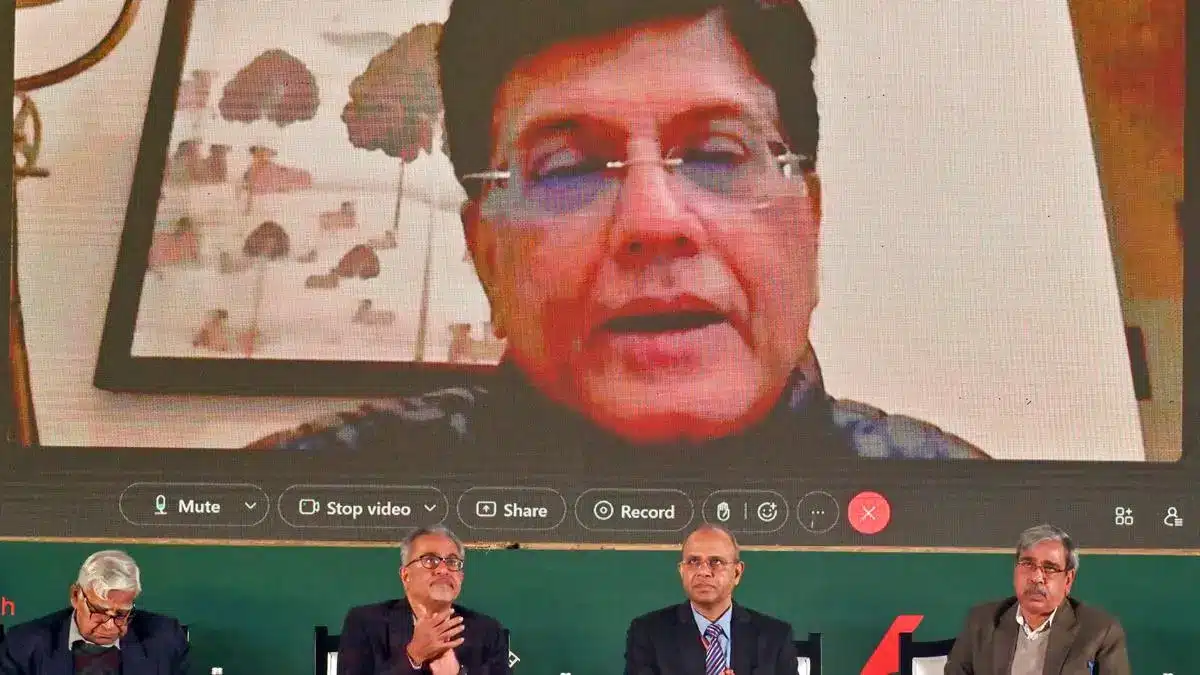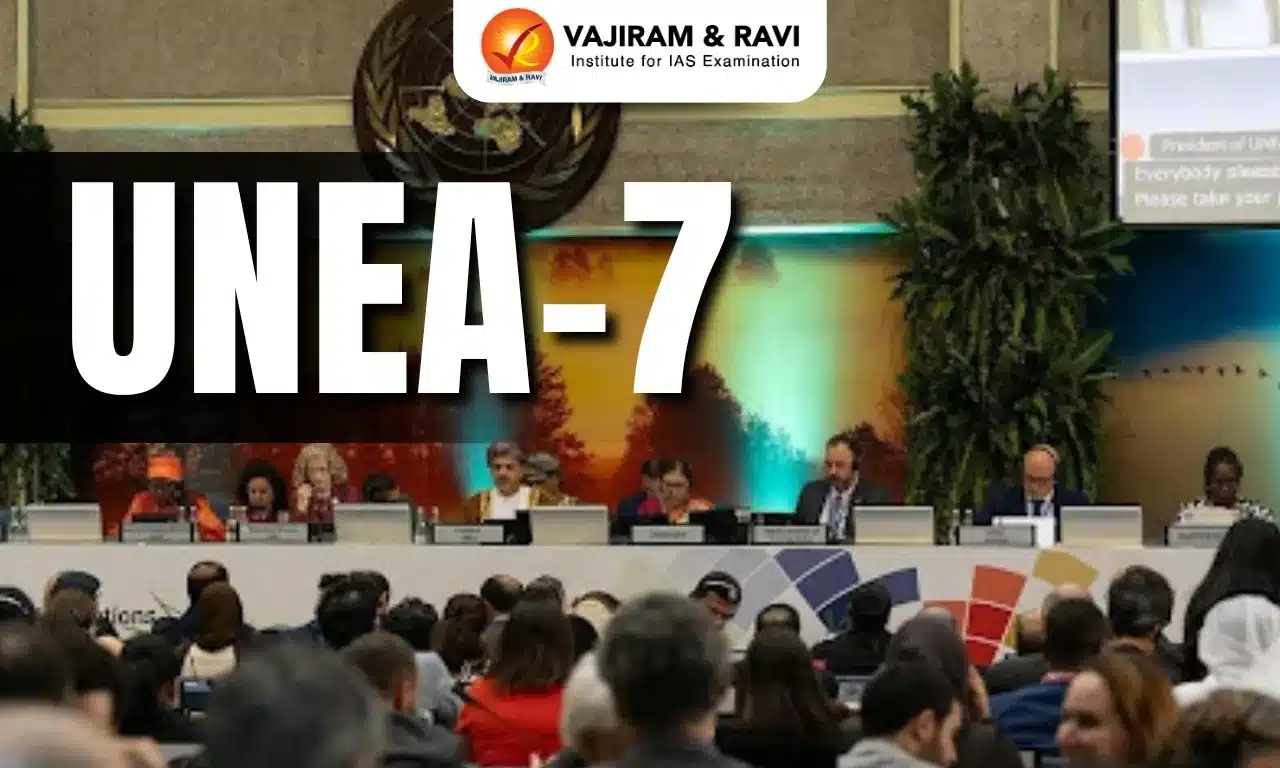What’s in Today’s Article?
- Why in the News?
- About Food Corporation of India (FCI)
- Role of FCI in Ensuring Food Security in India
- Challenges w.r.t. Food Security in India
- Shanta Kumar Committee Recommendations
- News Summary
Why in News?
- Union Minister Piyush Goyal said that the role of the Food Corporation of India is not only to deliver ration, but also to instil confidence in farmers and beneficiaries by bringing in transparency, efficiency and accountability.
About Food Corporation of India (FCI)
- The FCI is a statutory body formed by the enactment of the Food Corporation Act, 1964 by the Parliament.
- Objectives of FCI:
- Effective price support operations for safeguarding the interests of the farmers,
- Distribution of food grains throughout the country for Public Distribution System (PDS),
- Maintaining satisfactory level of operational and buffer stocks of food grains to ensure National Food Security.
- Nodal Ministry: Ministry of Consumer Affairs, Food and Public Distribution
Role of FCI in Ensuring Food Security in India
- Procurement of food grains at Minimum Support Price (MSP):
- One of the important functions of FCI is its involvement in the procurement of the food grains. The objectives of procurement include:
- Ensuring MSP to the farmers
- Availability of food grains to the weaker sections at affordable prices
- FCI procures food grains to ensure that effective market intervention is in place to keep the prices under check and also to ensure country’s food security.
- FCI, along with other state agencies takes up the procurement of Wheat and Paddy. This is done under the Price Support Scheme.
- Apart from these two, Coarse grains (Jowar, Bajra etc.) are also procured. This is taken by the State Government agencies as per the directions issued by Government of India.
- The Government of India announces the MSP as per the recommendation of Commission of Agricultural Costs and Prices (CACP), prior to every harvest ( Rabi/kharif season).
- The farmers have the freedom to sell elsewhere (i.e. to traders, millers etc.) if a higher price is offered.
- FCI and other government agencies are required to provide safeguards such that farmers are compelled not to sell at a lower price.
- One of the important functions of FCI is its involvement in the procurement of the food grains. The objectives of procurement include:
- Increase in FCI-owned Storage Capacity:
- FCI is also required to hold huge volumes of procured food grains for a sustained period of time, both for the planned delivery through PDS as well as for any unforeseen situations. Therefore, Storage function of FCI is very important.
- To meet the storage obligation, FCI has an extensive network of storage depots and silos in strategic locations across the country.
- Movement & distribution of the stock to deficit regions:
- FCI undertakes movement for the following purposes:
- To evacuate food grain stocks from the surplus regions.
- Supply them to deficit regions for distribution through PDS and other schemes.
- To create buffer stocks in deficit region.
- FCI also undertakes the supply of food grains for:
- Defence and Paramilitary forces
- Natural Calamities
- FCI undertakes movement for the following purposes:
Challenges w.r.t. Food Security in India
- With nearly 195 million undernourished people, India shares a quarter of the global hunger burden.
- Nearly 47 million or 4 out of 10 children in India are not meeting their full human potential because of chronic undernutrition or stunting.
- The government has large-scale food security and anti-poverty programmes but there are critical gaps in terms of inclusion and exclusion errors.
- Women and girls are particularly disadvantaged.
- Despite the achievement of national food self-sufficiency, new challenges have emerged:
- Slowing agriculture growth, climate change, land degradation and shrinking bio-diversity.
- Large tracts of farmlands in India have become barren due to imbalanced fertiliser use and excessive use of a single fertiliser, urea.
Shanta Kumar Committee Recommendations
- In August 2014, the Government set up a high-level committee to suggest restructuring or unbundling of FCI to improve its financial management and operational efficiency in procurement, storage and distribution of food grains.
- Key Recommendations Made by the Committee:
- Reduce the number of beneficiaries under the Food Security Act-from the current 67 per cent to 40 per cent. Allow private players to procure and store food grains.
- Stop bonuses on minimum support price (MSP) paid by states to farmers, and adopt cash transfer system so that MSP and food subsidy amounts can be directly transferred to the accounts of farmers and food security beneficiaries.
- FCI should involve itself in full-fledged grains procurement only in those states which are poor in procurement.
- In the case of those states which are performing well, like Haryana, Punjab, Andhra Pradesh, Chhattisgarh, Madhya Pradesh and Odisha, the states should do the procurement.
- Abolishing levy rice: Under levy rice policy, government buys certain percentage of rice (varies from 25 to 75 per cent in states) from the mills compulsorily, which is called levy rice.
- Mills are allowed to sell only the remainder in the open market.
- Deregulate fertiliser sector and provide cash fertiliser subsidy of Rs 7,000 per hectare to farmers.
- Outsource of stocking of grains: The committee calls for setting up of negotiable warehouse receipt (NWR) system.
- In the new system, farmers can deposit their produce in these registered warehouses and get 80 per cent of the advance from bank against their produce on the basis of MSP.
- Clear and transparent liquidation policy for buffer stock: FCI should be given greater flexibility in doing business; it should offload surplus stock in open market or export, as per need.
News Summary
- The Union Food Minister Piyush Goyal attended the 60th foundation day of the FCI.
- He said that the role of the FCI is not only to deliver ration, but also to instil confidence in farmers and beneficiaries by bringing in transparency, efficiency and accountability.
- He urged the youth and officers in the FCI to turn as whistle-blowers to ensure transparency in running the organisation.
- He said the FCI needed to embrace digitalisation and technology by ensuring quality.
Q1) What do you mean by Food Security?
Based on the 1996 World Food Summit, food security is defined when all people, at all times, have physical and economic access to sufficient safe and nutritious food that meets their dietary needs and food preferences for an active and healthy life.
Q2) Which are the three largest wheat producing states in India?
Uttar Pradesh, Madhya Pradesh, and Punjab are the 3 largest wheat-producing states in India.
Source: Goyal asks FCI officers to turn whistleblowers to curb corruption | PIB
Last updated on December, 2025
→ Check out the latest UPSC Syllabus 2026 here.
→ Join Vajiram & Ravi’s Interview Guidance Programme for expert help to crack your final UPSC stage.
→ UPSC Mains Result 2025 is now out.
→ UPSC Notification 2026 is scheduled to be released on January 14, 2026.
→ UPSC Calendar 2026 is released on 15th May, 2025.
→ The UPSC Vacancy 2025 were released 1129, out of which 979 were for UPSC CSE and remaining 150 are for UPSC IFoS.
→ UPSC Prelims 2026 will be conducted on 24th May, 2026 & UPSC Mains 2026 will be conducted on 21st August 2026.
→ The UPSC Selection Process is of 3 stages-Prelims, Mains and Interview.
→ UPSC Result 2024 is released with latest UPSC Marksheet 2024. Check Now!
→ UPSC Prelims Result 2025 is out now for the CSE held on 25 May 2025.
→ UPSC Toppers List 2024 is released now. Shakti Dubey is UPSC AIR 1 2024 Topper.
→ UPSC Prelims Question Paper 2025 and Unofficial Prelims Answer Key 2025 are available now.
→ UPSC Mains Question Paper 2025 is out for Essay, GS 1, 2, 3 & GS 4.
→ UPSC Mains Indian Language Question Paper 2025 is now out.
→ UPSC Mains Optional Question Paper 2025 is now out.
→ Also check Best IAS Coaching in Delhi

















